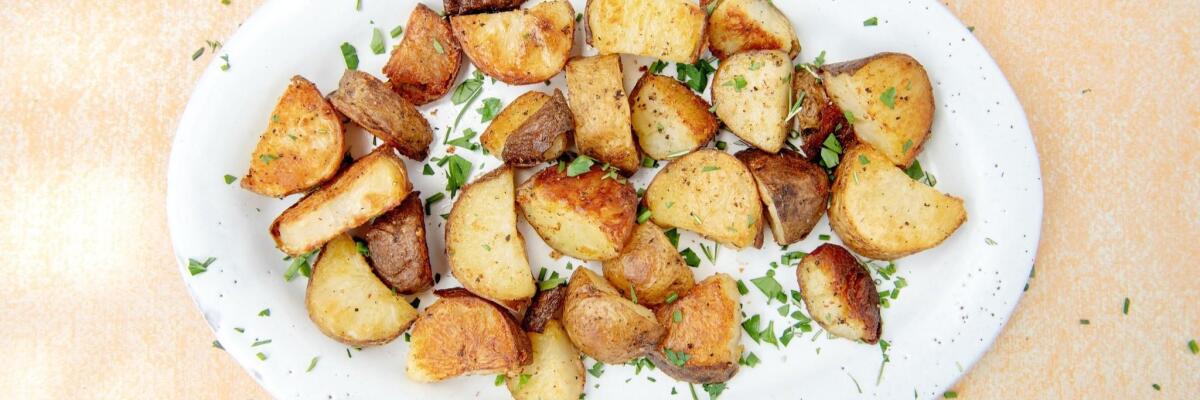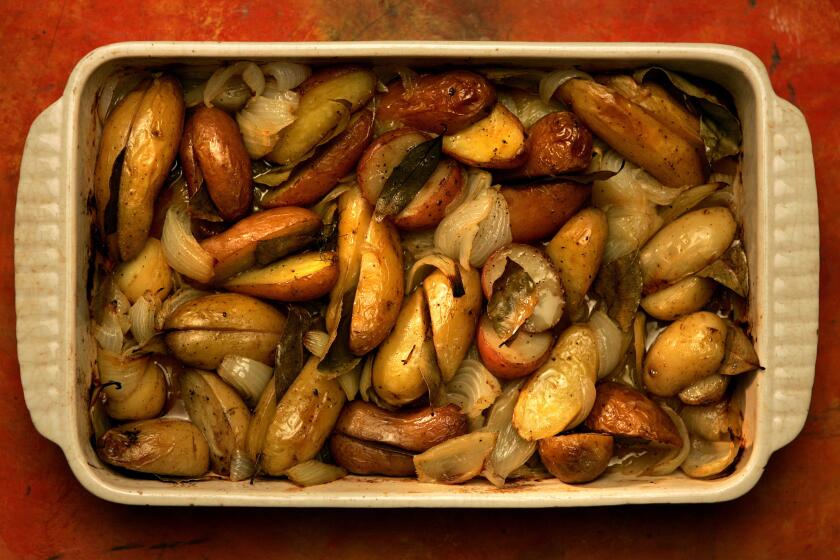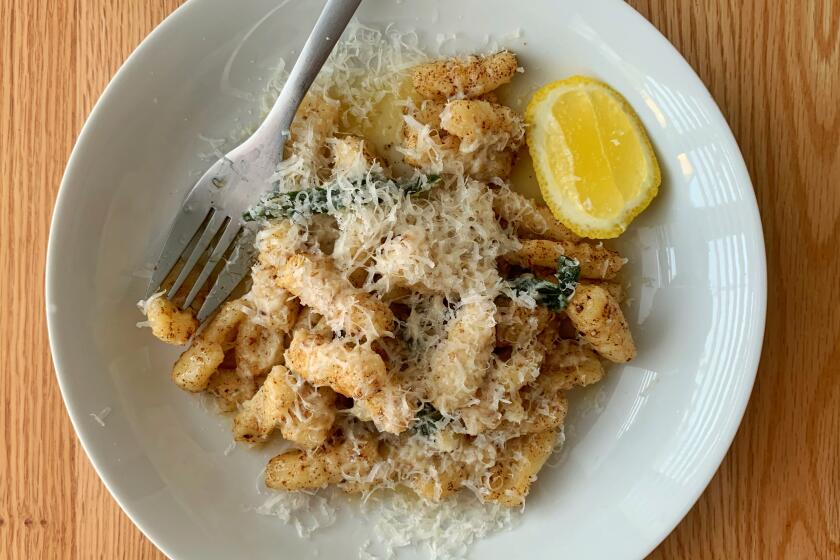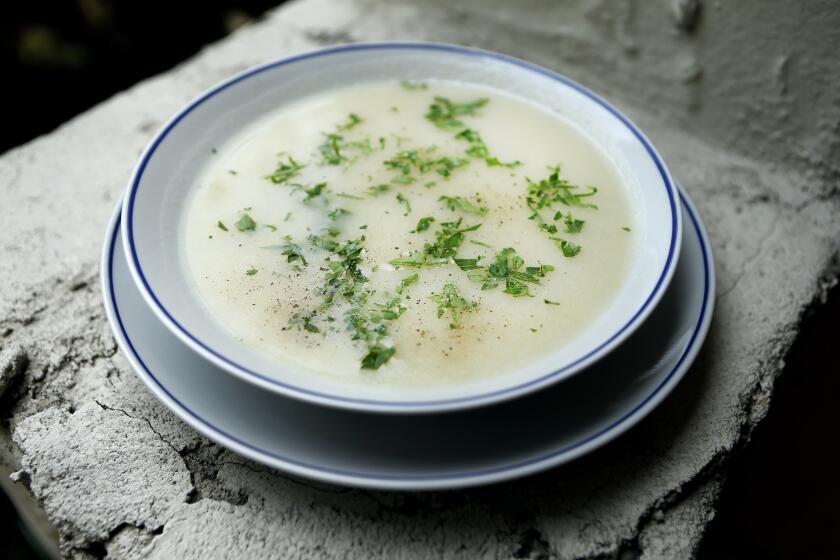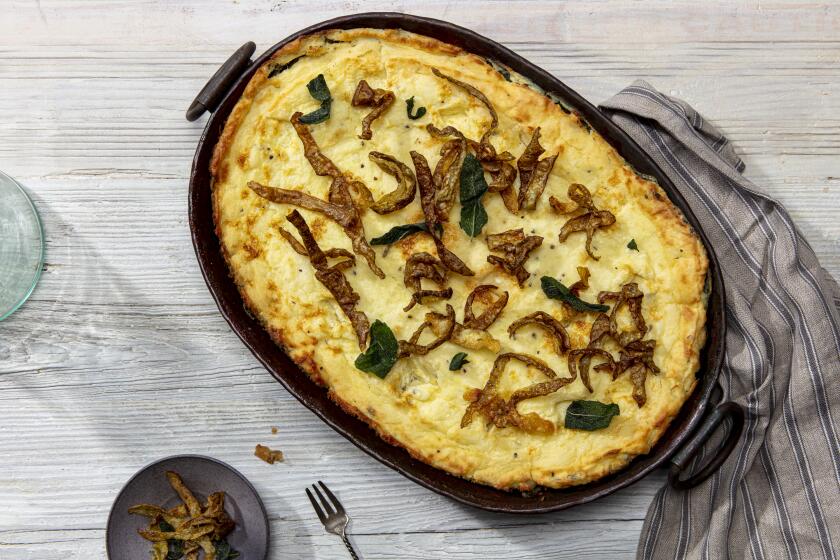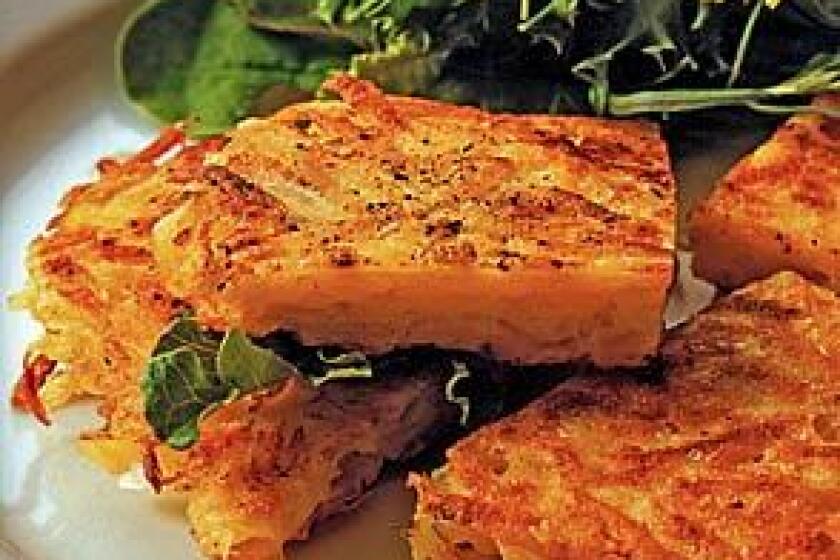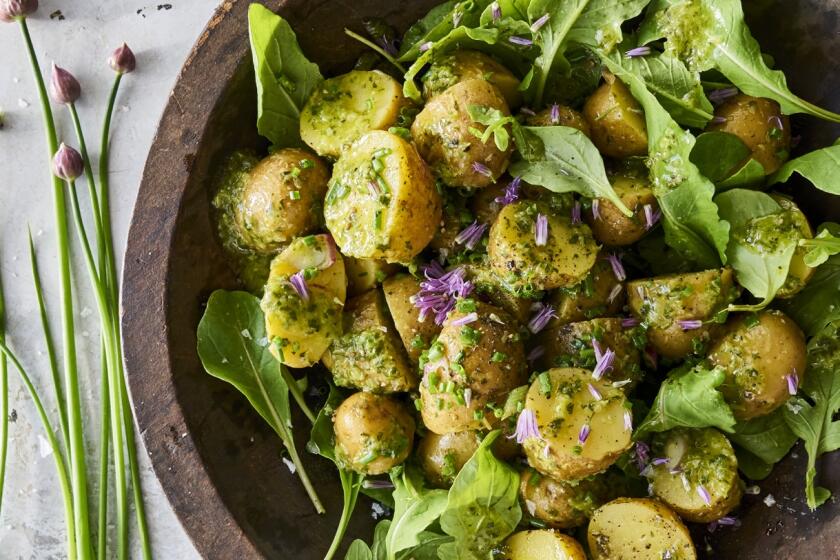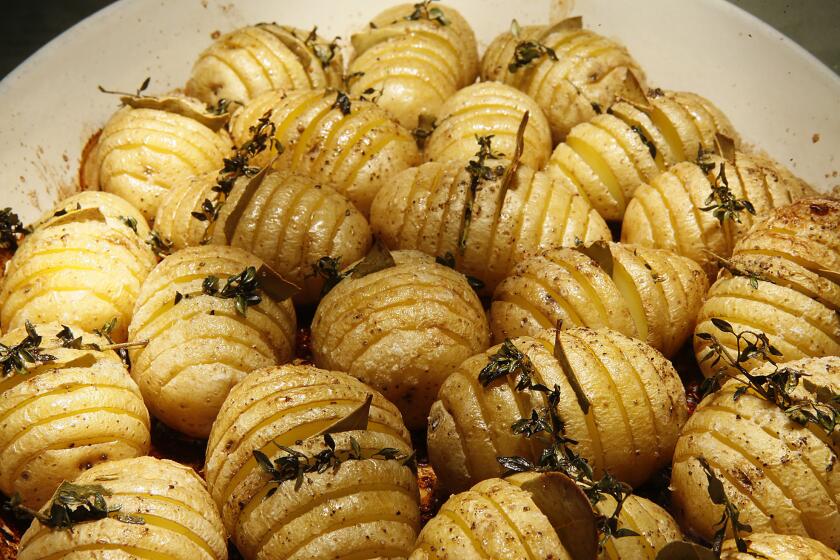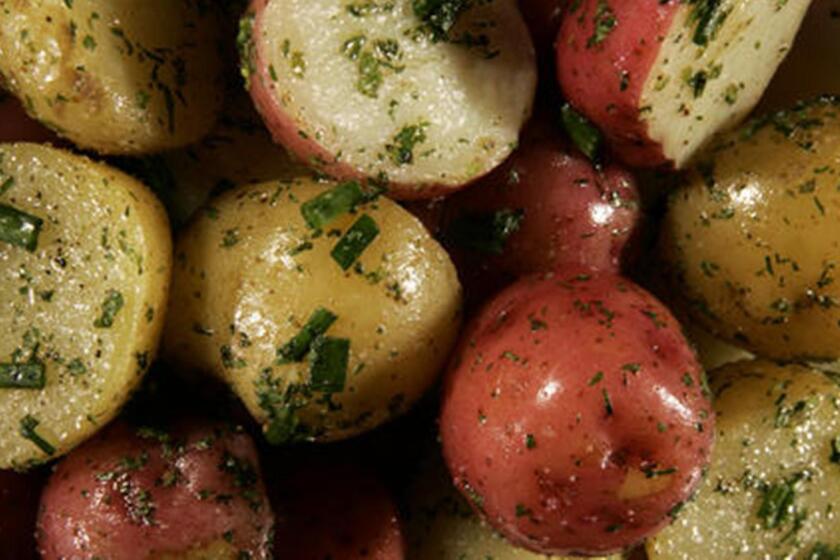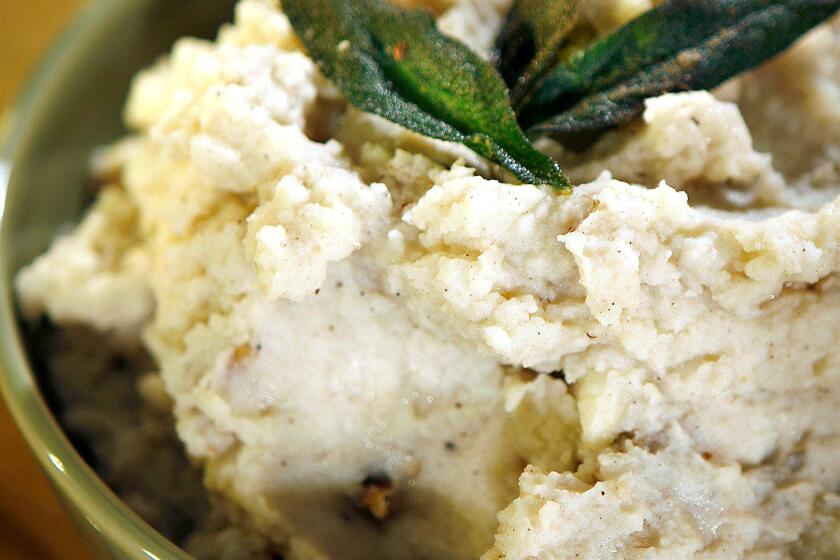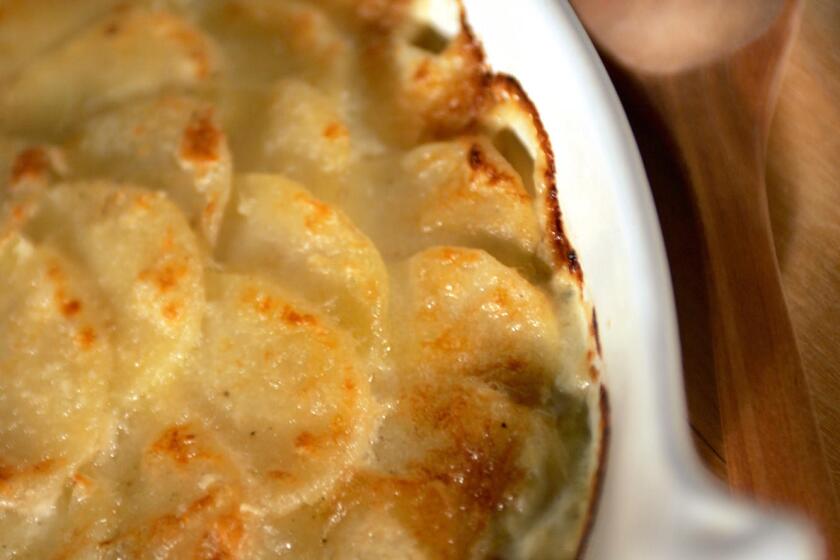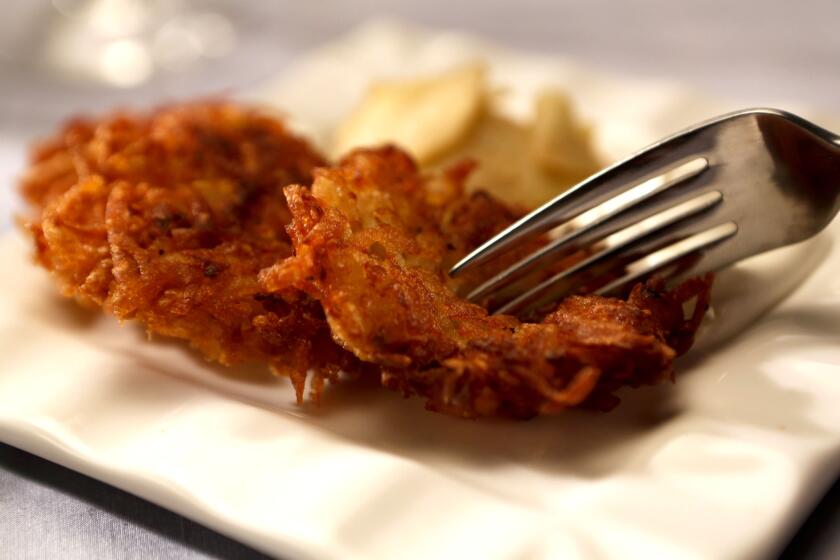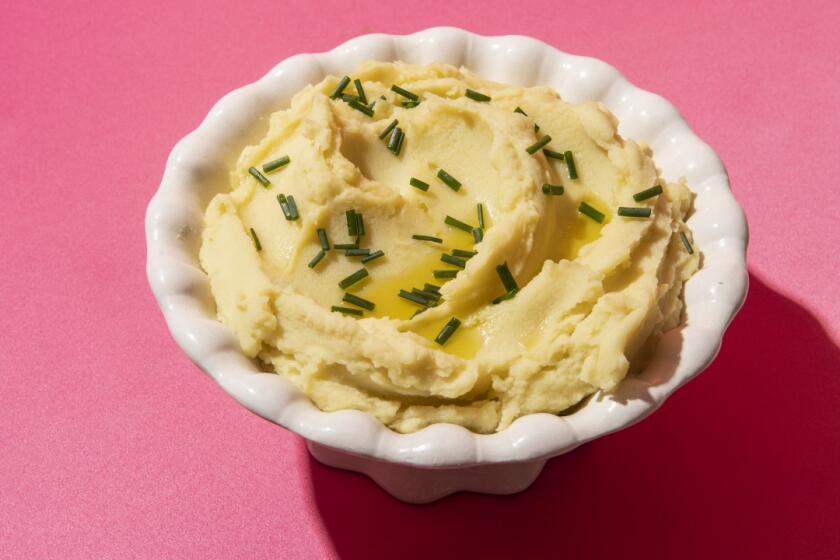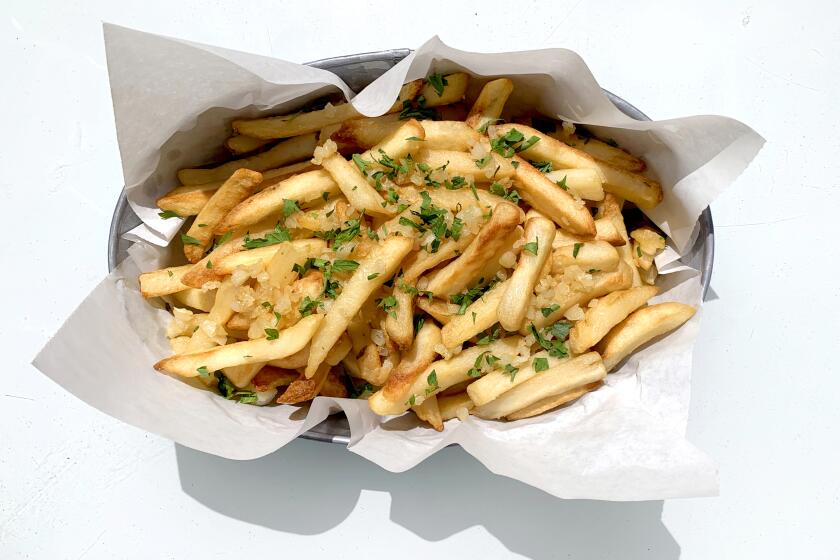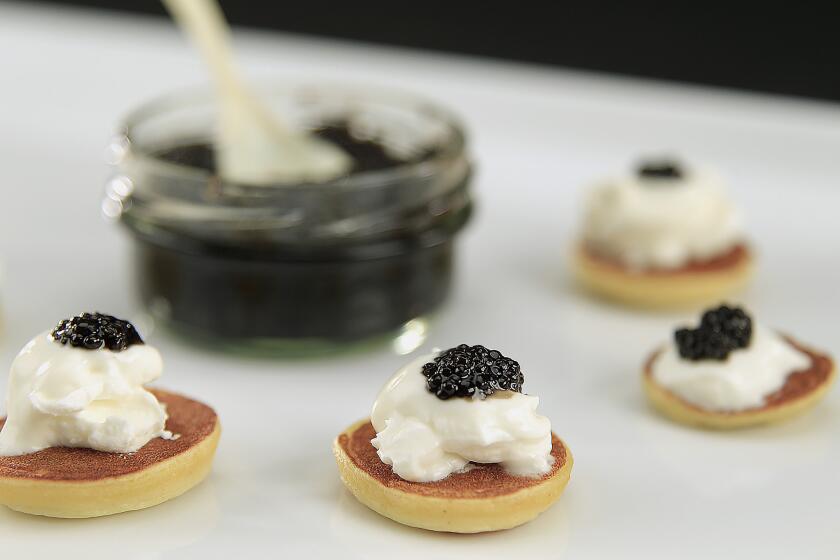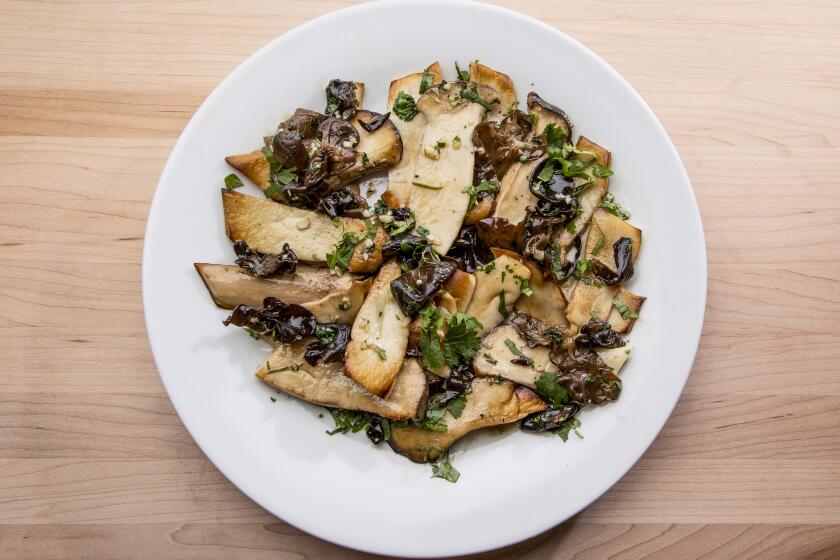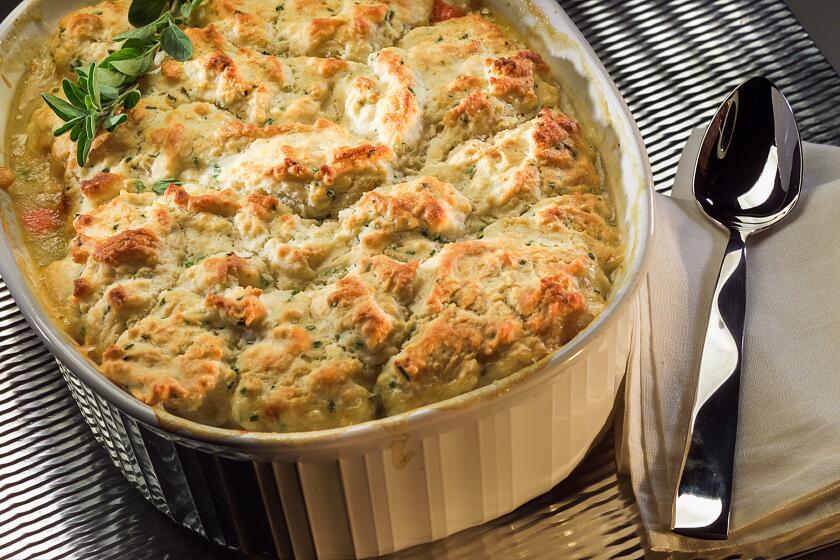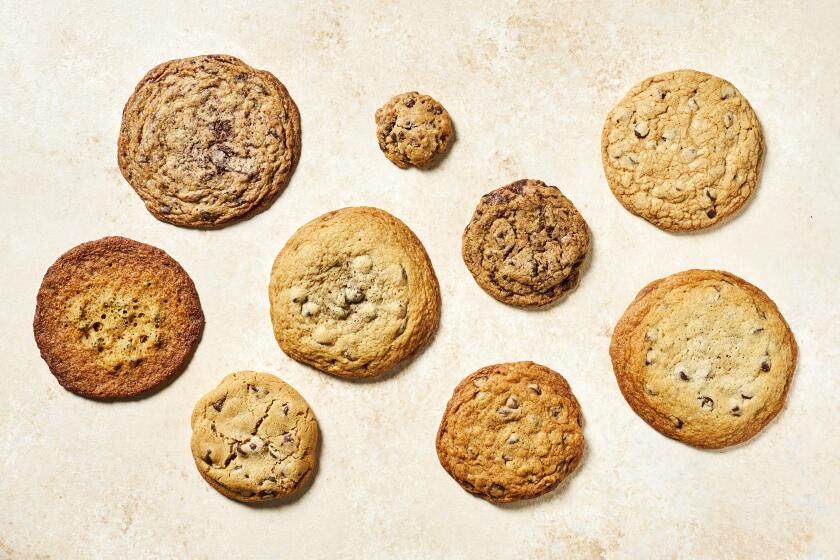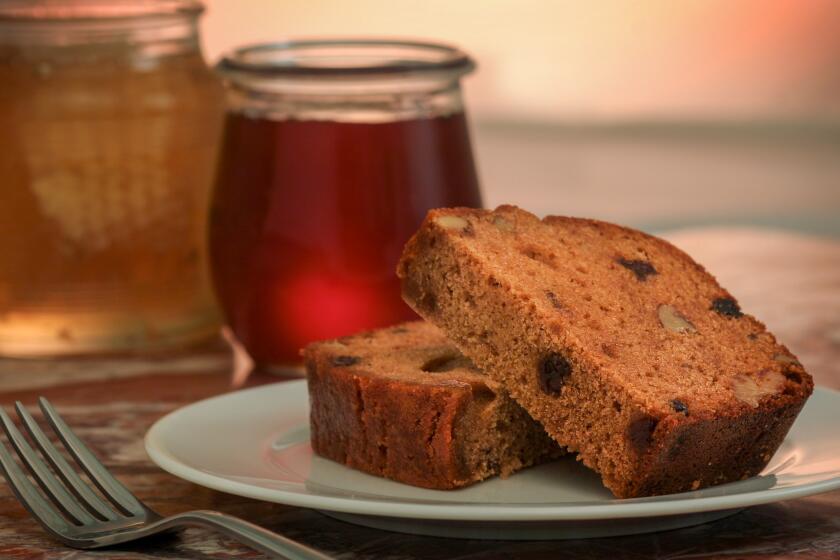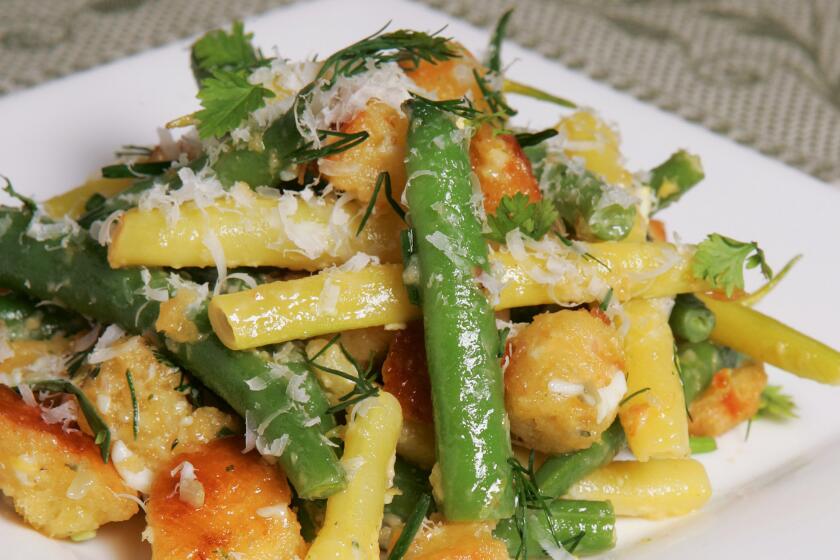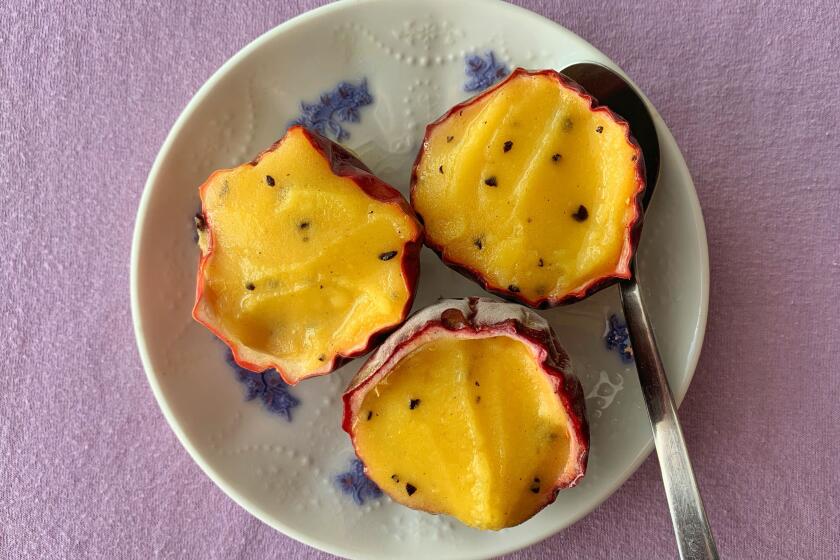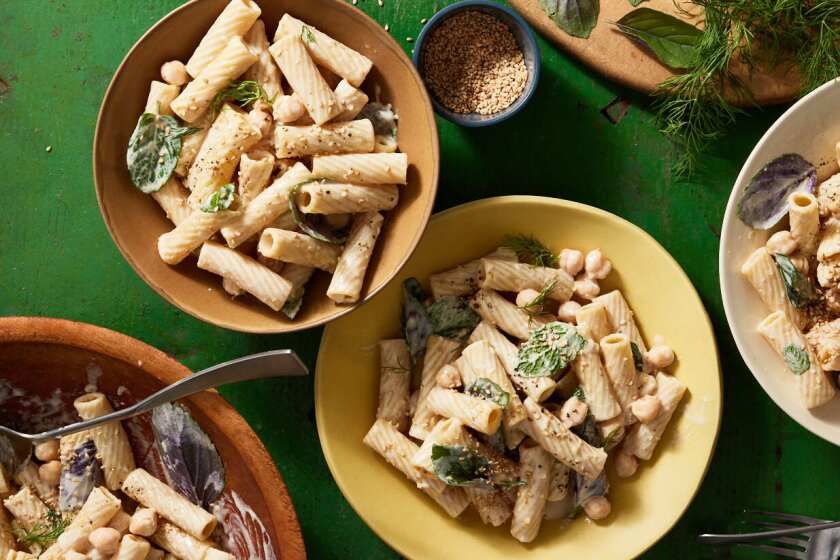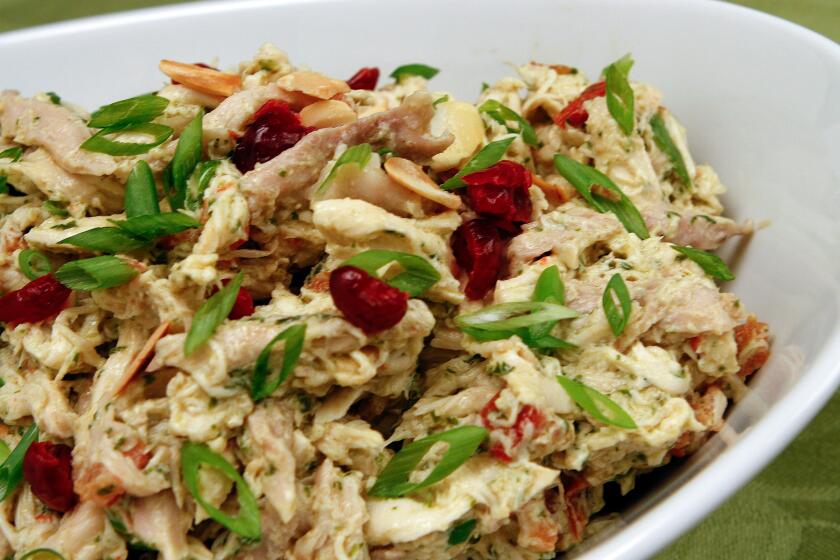Julie Giuffrida is the former Test Kitchen coordinator for the Los Angeles Times.
Fifteen recipes and six principles for superb spuds
- Share via
Potatoes are affordable, abundant, nutritious and delicious. From the basic baked potato to French fries to potato blinis with caviar, how you handle your potatoes is key to the success of your dish. A few basic principles will help you elicit potato perfection.
Use the right potato for the job. Baking potatoes, such as Idaho russets, cook up starchy and fluffy. Their high starch content makes for creamy mashed potatoes, billowy gnocchi and crisp-on-the-outside, creamy-on-the-inside potato pancakes. Gold potatoes with their buttery flavor and creamy texture are great roasted and in gratins. For the creamiest mashes, use russets or gold potatoes. Use less starchy red, baby or new potatoes when you want more intense potato flavor and for the potatoes to retain their shape, as with a potato salad.
Simmer, don’t boil. Low and slow ensures even cooking; a rolling boil will cause the exterior to disintegrate before the centers are cooked through. This holds for mashes like once-baked potatoes and for applications like blinis and even soups.
Season as you cook. Salt in the cooking water seasons the potatoes. Add herbs and spices to the water as well. Your potato preparations will all be more flavorful.
Heat mix-ins. If adding ingredients like butter, milk and yogurt, warm them before adding to mashed potatoes to prevent them from cooling the potatoes too much.
Parboil before frying or roasting. For crispy fries and super-crisp roasted potatoes, cook them part of the way first in simmering water before putting them in the fryer or oven. This will ensure that they are crispy on the outside and fluffy on the inside when you take them out.
Steam rather than boil. For dishes like new potatoes with mixed herbs, steaming maintains the shape of the potatoes and prevents them from getting waterlogged.
Store properly. Potatoes are best kept in a cool, dark location, preferably around 45 to 55 degrees, like in a dark pantry or basement. Refrigeration will impair their flavor and texture, but if you must refrigerate them, be sure to bring your potatoes back to room temperature before cooking. Do not wash potatoes until you’re ready to use them; the moisture can cause spoilage.
Roast potatoes, onions, fennel and bay leaves
Time 1 hour 30 minutes
Yields Serves 4 to 6
Easy Potato Gnocchi With Browned Butter and Sage
Time 1 hour, 45 minutes
Yields Serves 2
French leek and potato soup
Time 1 hour
Yields Serves 4 to 6
Once-Baked Mashed Potatoes With Fried Sage Skins
Time 1 hour, 50 minutes
Yields Serves 8
Potato crepe (crique)
Time 25 minutes
Yields Serves 2 to 3
Super-Crisp Roasted Potatoes
Time 1 hour 25 minutes
Yields Serves 4 to 6
Spring Potato Salad With Green Garlic Dressing
Time 45 minutes
Yields Serves 6 to 8
Roast hedgehog potatoes
Time 1 hour 15 minutes
Yields Serves 6 to 8
New potatoes with mixed herbs
Time 40 minutes
Yields Serves 6
Brown Butter Mashed Potatoes With Fried Sage
Time 40 minutes
Yields Serves 6 to 8
Three-cheese potato gratin
Time 2 hours
Yields Serves 6
Jonathan Gold's Favorite Potato Latkes
Time 1 hour
Yields Serves 10 to 12
Creamy Leek Mashed Potatoes
Time 45 minutes
Yields Makes about 8 cups
Garlic Fries
Time 20 minutes
Yields Serves 4 to 6
Yukon Gold Potato Blini
Time 1 hour 30 minutes
Yields Makes 3 to 3 1/2 dozen small blini

